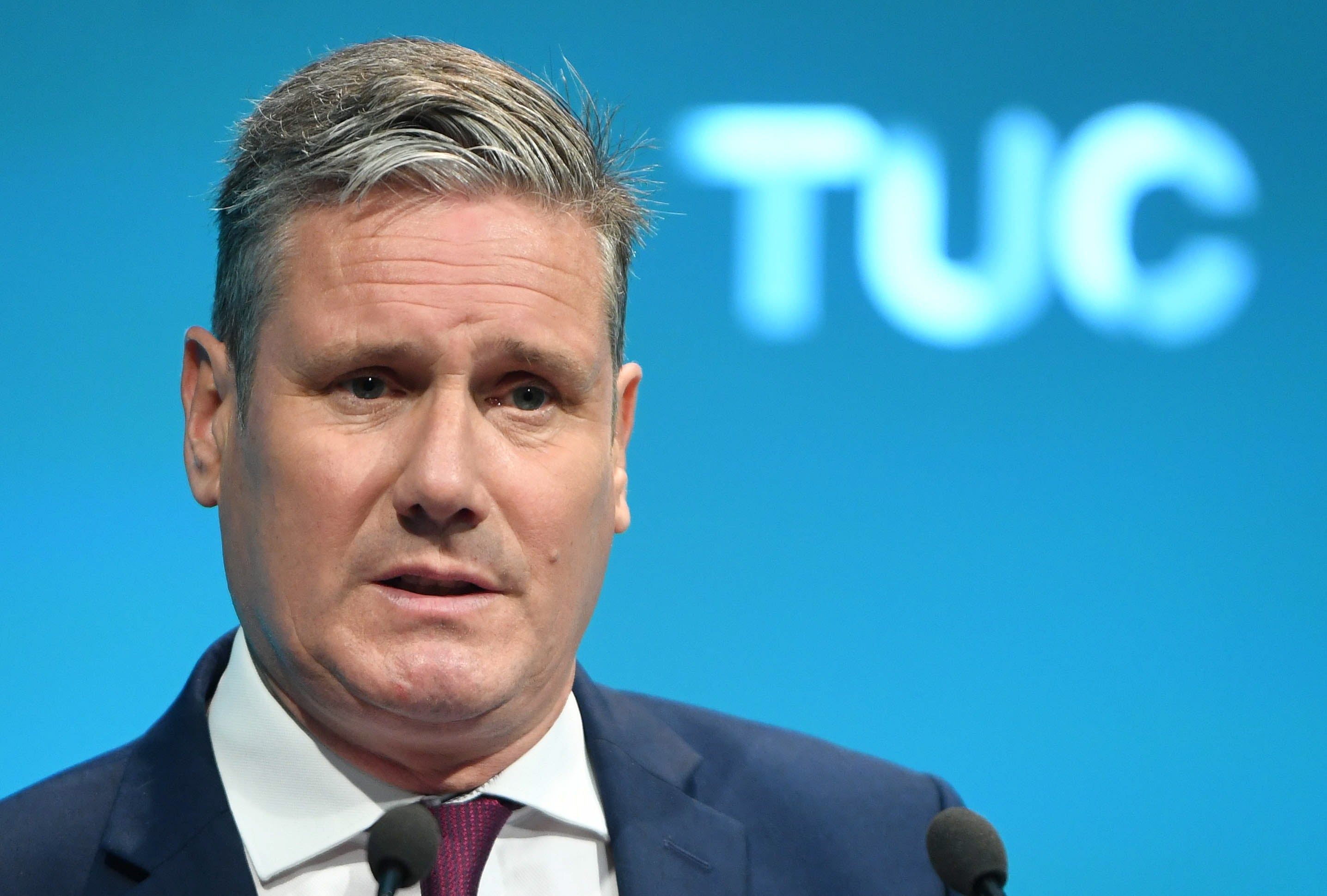Keir Starmer may have John Smith’s leadership style – but he faces a much stronger opposition
The build-up to next week’s Labour conference seems familiar: the party leader hopes ‘one more heave’ will be enough


Keir Starmer went to the Trades Union Congress this week and promised full employment rights from day one in work. Twenty-eight years ago, John Smith did the same. I remember it because I was trying to “doorstep” him with a BBC camera crew – trying to catch him as he went into the TUC to ask him if he was prepared to defy the unions by cutting their power in the party.
I didn’t succeed: Smith dashed into the building ignoring my question – he apologised for “dodging” me later, after he had succeeded in getting his plans for “one member, one vote” through the ensuing Labour conference.
Keir Starmer doesn’t like being compared to previous Labour leaders, but the Smith one is more apt than most. Like Smith, Starmer trades on his competence as a lawyer to present a reassuring face to the voters. Like Smith, Starmer places himself at the centre of the party, emphasising unity above all, while offering baubles to both left and right to keep them happy.
Starmer’s speech to the TUC on Tuesday was utterly conventional. Full employment rights from day one pleases both the unions and the party mainstream, who will gather next weekend for Labour’s conference in Brighton. Tony Blair and Gordon Brown, the Labour modernisers, were frustrated when Smith made that promise in 1993 and dropped it when they took over the party – it wasn’t enacted in 13 years of Labour government.
The build-up to this Labour conference feels familiar. Shadow cabinet members are popping up on Newsnight to strike “left-wing” poses. Ed Miliband was on on Monday to say that the party hadn’t retreated from the “common ownership” of the “natural monopolies” of energy, water and transport. It is not clear if this was coordinated with Starmer to appease soft Corbynites, or if Miliband was freelancing (he was on to talk about climate change); either way, it was ever thus.
In 1993, Smith had to make “the speech of his life” to persuade the unions to vote for his party reforms. He didn’t. It was John Prescott, the shadow transport secretary, who did that, urging the conference to support “this man, our leader”, who had “put his head on the block”.
The advance billing for Starmer’s speech is equally apocalyptic: it will make or break his leadership, say some Labour MPs with slightly too much relish. It won’t. It will probably be quite a good speech, and he won’t deliver it very well. He is not a natural orator. Nor was Smith, although Smith was charismatic and witty in the House of Commons, which made up for it.
Starmer, on the other hand, has little to compensate for his dull speaking style and earnestness except a certain doggedness and a reputation, like Smith’s, for personal integrity. Two of Starmer’s interviews have been unintentionally revealing of his Smithian qualities. In one of his first when he was elected leader, Laura Kuenssberg of the BBC asked Starmer if he had enjoyed the campaign. No, he said, which was the Wrong Answer: “For me personally, I really hated selling myself into the membership and I much prefer leadership decisions as leader.”
When Kuenssberg expressed surprise bordering on disbelief, he backtracked, saying it wasn’t like a general election, “because you’re in your own party and you’re up against colleagues, very good colleagues who you like”. But it is not the sort of thing you are supposed to say as a politician, who is always supposed to be enthusiastic about selling their message. Smith wasn’t such a shrinking violet, but he was no great egotist either.
Starmer’s other telling interview was this week’s, with Stephen Bush of the New Statesman, in which he tried to make a virtue of his dullness: “This is the frustration I have when people talk about ‘passion’ in politics. You can either walk round a problem and scream about it for hours on end – or you can say, ‘What are you going to do to fix it?’ I’m much more interested in the second.”
There is no doubt that he faces an uphill task in winning the next election, just as Smith did when he became leader in July 1992. The difference is that, two months after Smith took over, John Major’s exchange-rate policy collapsed and his government’s reputation went with it. Not even the coronavirus pandemic has had that effect on Boris Johnson’s standing with the British people.
Smith’s approach was dismissed as “one more heave” by the modernisers, who thought the party needed to be completely changed, but there is no doubt that Smith would have won the 1997 election, if not by such a great margin. All Starmer needs, therefore, is an economic humiliation for the government as bad as that in 1992. Unfortunately for Labour, this must be unlikely, because any setback of that kind would be seen through the prism of Brexit, reinforcing Johnson’s voter base rather than weakening it. Some things are not the same as a generation ago.

Join our commenting forum
Join thought-provoking conversations, follow other Independent readers and see their replies